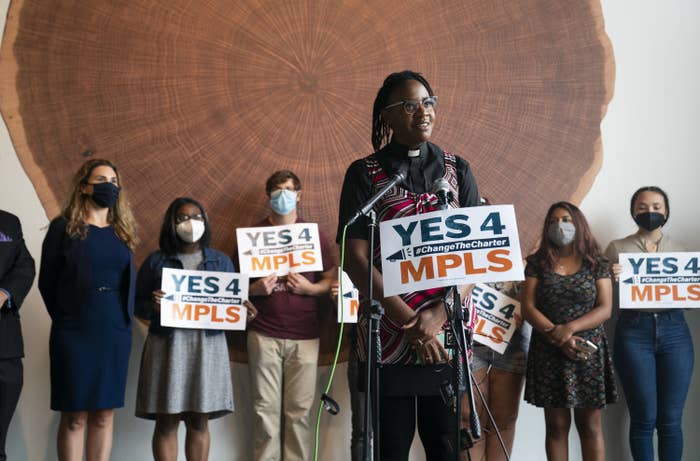
MINNEAPOLIS — The city of Minneapolis rejected a ballot amendment on Tuesday that would have overhauled its police department and replaced it with a department geared toward providing a more comprehensive approach to public safety.
The vote took place in the Democratic Midwestern city where George Floyd, a Black city resident, was murdered by a police officer last year, sparking an international movement against racism. The defeat of the ballot question is a major blow to proponents of police reform, who failed to come up with a strategy that voters found convincing.
National public figures from the Democratic party had weighed in on the ballot contest, with the fault lines largely falling between progressives supporting a "yes" vote, and moderates opposing the change. Beyond the potential model that Minneapolis could have provided to other cities by pursuing this, the election was also a test in a Democratic city of whether there was political will behind the desire to fundamentally change policing following Floyd’s death.
The results will surely lend themselves to Democrats who have argued that any positions that could be interpreted as defunding the police will be politically imprudent for their party. In 2020, Republicans cast Democrats as anti-police, and Democrats worked to backtrack from that messaging. The results of the contest come as Democrats are looking ahead to midterms broadly expected to be an uphill climb for their party, when historically the party in power loses seats in the midterms.
In addition to the ballot question, which had two full-scale campaigns working on either side, Minneapolis residents voted on two other ballot amendments, city council candidates, and a mayoral race. The question around what to do with the police department hovered over the other contests.
The campaign against the ballot measure argued that, in addition to creating a confusing reporting structure for the proposed public safety department, the language of the ballot question was too vague to provide concrete change. Proponents of the ballot amendment argued that it would expand the department to include professionals who could respond to situations that did not require an armed police officer and that it did not mean they were trying to defund the police.

